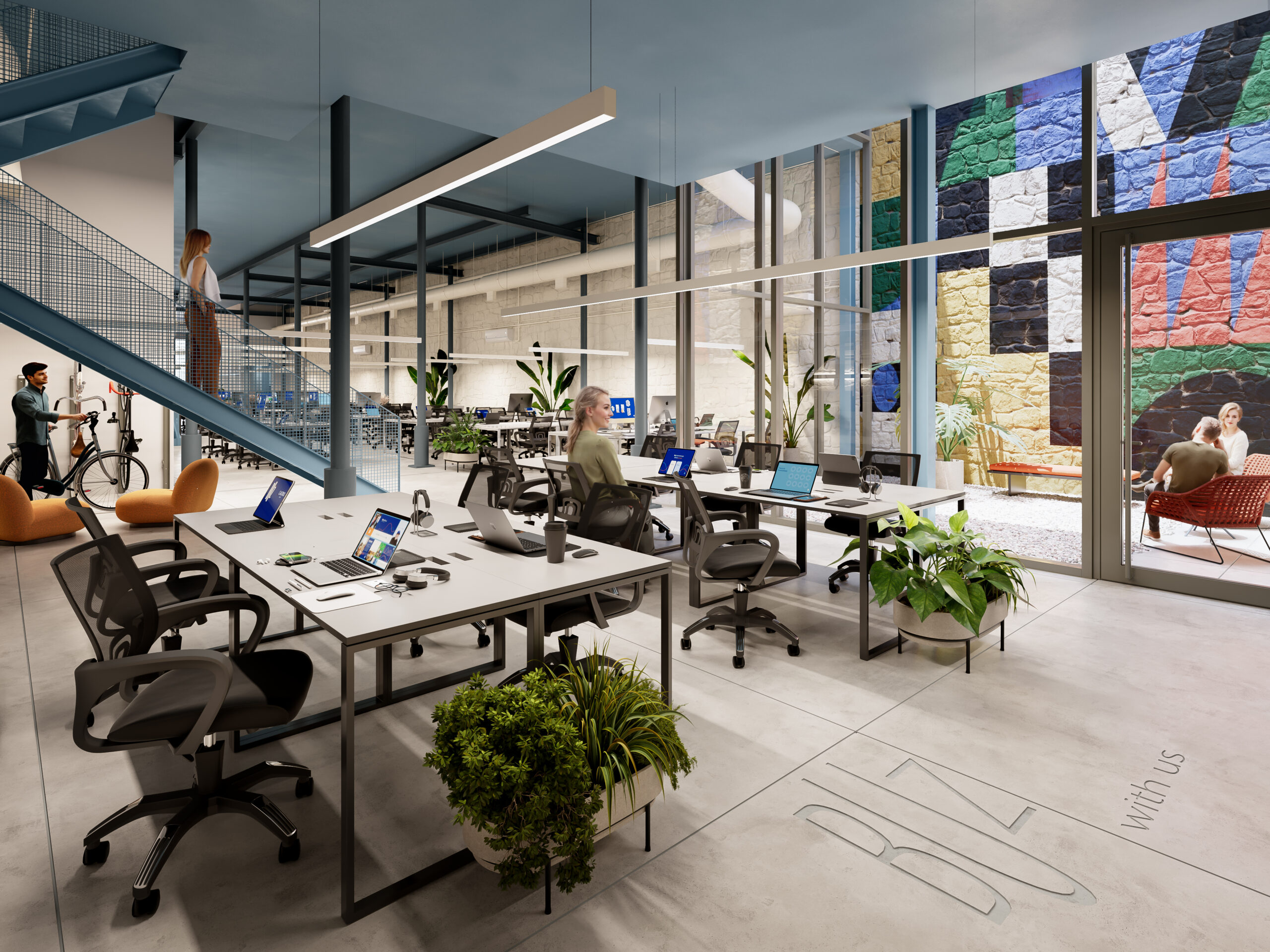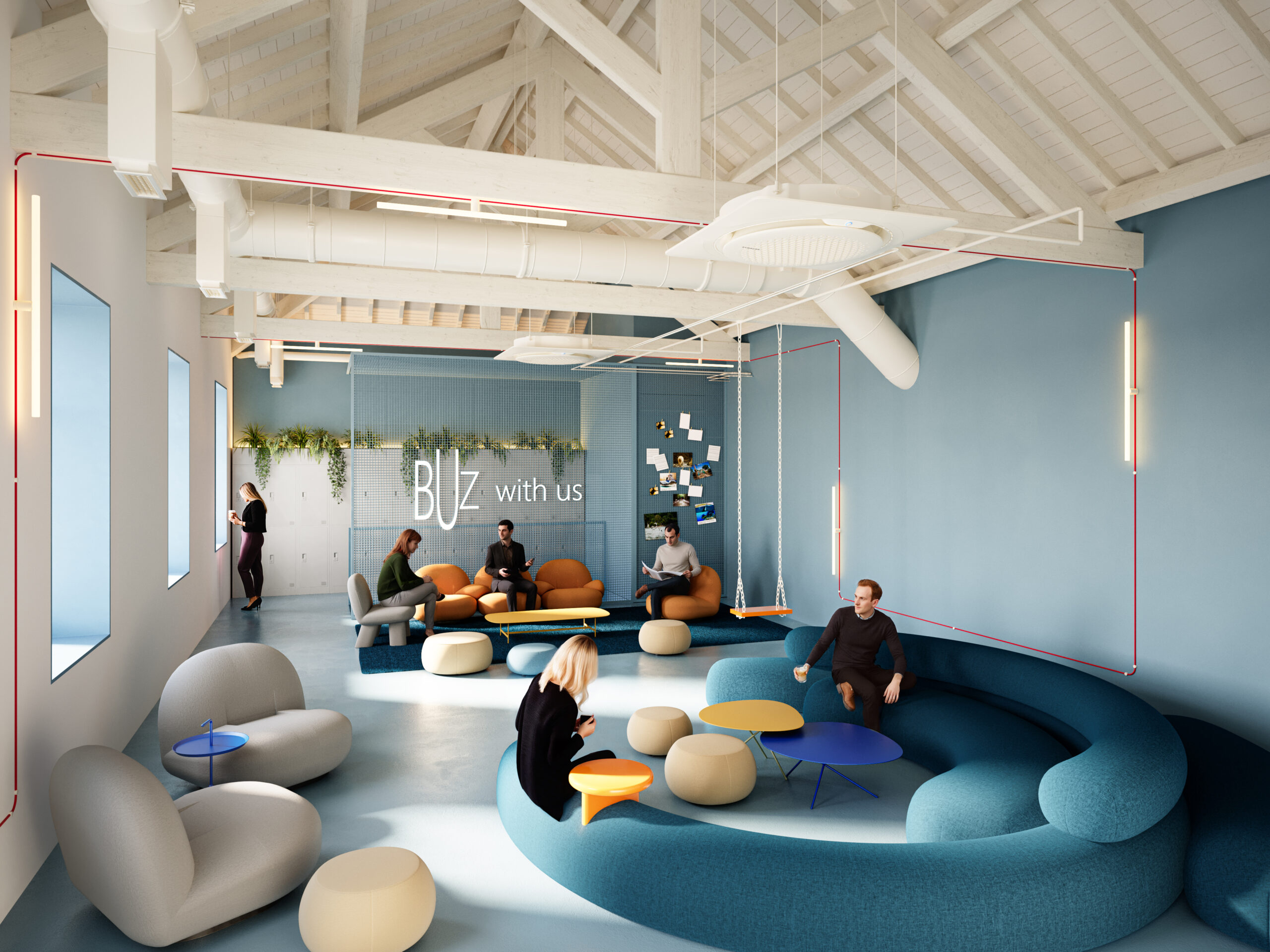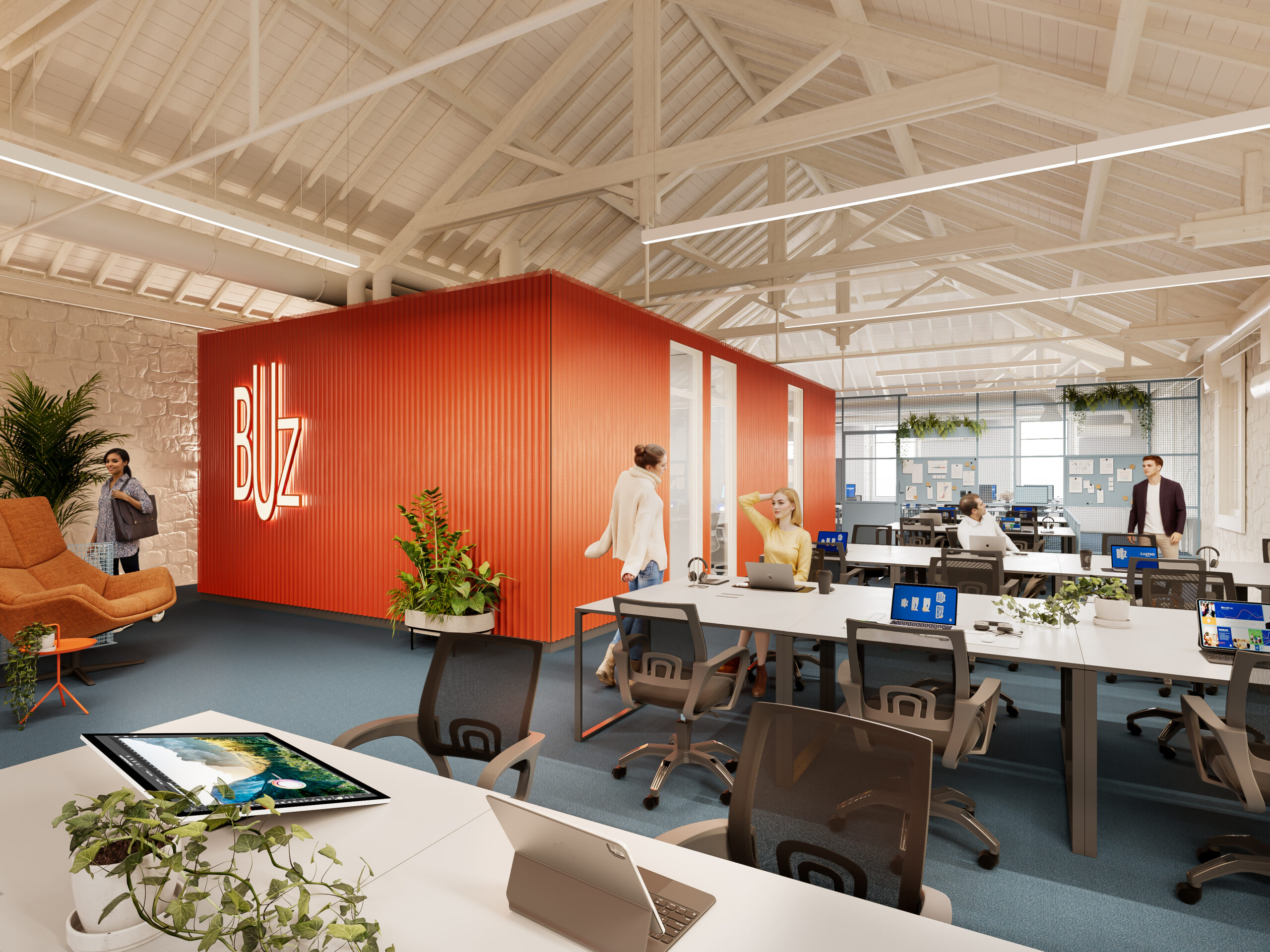The term flex working does not refer to a single model, but rather to a guiding principle that gives rise to various ways of organising work and workspace.
Among the most prominent approaches are:
The common denominator? At the heart of all these approaches is a simple idea: to create spaces that follow the pace of professional life, rather than constrain it.

In a more flexible and digital landscape, the office still plays a vital role: it is where company culture comes to life.
More than just a place of transit, the physical workspace becomes a meeting point that reinforces a sense of belonging, promotes organisational values, and fosters collaboration.
Organisations adopting hybrid or flexible models are reimagining their offices as spaces of identity and brand expression—through design, social areas, focus zones, inspiring environments, and experiences that reflect the brand’s personality.
At the same time, when office presence is no longer daily, each visit to the physical space becomes more intentional. Creating symbolic moments in the office, such as weekly meetings, team lunches, internal events or celebration areas, helps strengthen rituals and nurture company culture.

The growing demand for flexibility, operational efficiency, and risk reduction has led to developing the Workplace-as-a-Service (WaaS) model.
In this approach, the office is no longer a fixed asset but becomes a full-service solution: it includes technology, administrative support, meeting rooms, cleaning, reception, security, and integrated management -all in a single package, tailored to each company’s size, duration, and real needs.
Unlike traditional leasing models—which involve long-term contracts, high upfront investment, and internal management—WaaS offers agility, cost predictability, and the freedom to focus on the core business.
Immediate scalability, with no need for upfront investment
Lower fixed costs and greater control over spending
Business focus, by outsourcing space management to experienced providers
It is a particularly appealing solution for startups, growing teams, or international companies seeking a local presence that is agile and professional.
Startups experiencing rapid growth
International companies looking for an agile entry into new markets
Temporary or project-based teams with variable duration or structure
Take, for example, a foreign tech company wanting to test the Portuguese market with a small local team. By choosing a WaaS model, it can begin operating within days, with everything included—and if the project grows, it can scale naturally within the same network.
Abroad—and increasingly at home—workspaces are becoming more human, personalised, and connected to real life. Among the key international trends are:

These transformations reflect an increasingly clear truth: work is now a lived, felt, and chosen experience. And spaces must evolve accordingly.
Flex working is, therefore, a way of rethinking work environments—making them more agile, human, and aligned with what truly matters. Whether through shared hubs, offices-as-a-service, or headquarters with multiple configurations, the goal remains the same: to create environments that respect the teams’ time, talent, and purpose.
Back to the top